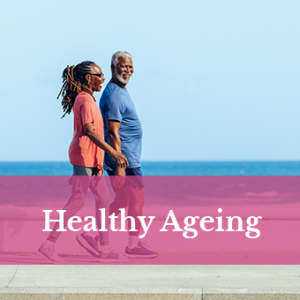
Older women’s experience of ageism in health – perceptions based on breast cancer screening beyond the targeted age range
Presenter(s):
Joanne Adams, La Trobe University, Australia
Abstract
Ageism is experienced in a range of direct and indirect ways. Little is known about the impact of ageism on the health and wellbeing of older women. Interacting within the health care system becomes more complex with age, not only because of increased co-morbidity, but also due to changing perceptions of the ageing body personally and more broadly within health care systems and society.
Using a qualitative descriptive study design and semi-structured interviews, this study explores notions of ageism raised during discussion surrounding breast cancer screening beyond the targeted age range. The study draws on a purposive sample of 60 women aged ≥75 years who participated in an Australia-wide study. In-depth individual interviews were audio-recorded, transcribed verbatim and imported into NVivo software to enable thematic analysis and identification of key themes.
Our results outline clear changes experienced by women aged ≥75 years in their interaction with and perception of health care based on age. Perceptions of ageism were grouped into themes falling under headings of micro, meso and macro experiences of ageism. Sub themes related to generational differences, health system experiences, societal influences, and use of technology and online platforms. Ageism may be based on both perception and experience. The impact on health and wellbeing of women aged ≥75 years was variable and often modified by associated peer groups.
Acknowledging the multiple layers of ageism provides health care providers with an opportunity to understand the impact and how this may be addressed in forms of communication and care. Health messages designed to reach older women must be cognisant of the impact of direct and indirect forms of ageism. Establishment of trust and avoiding reliance on online platforms as sources of information are important for this age group. Health promotion and prevention initiatives based on age-related criteria may contribute to notions of ageism.
*Joanne Adams1, Virginia Dickson-Swift1, Irene Blackberry2,3, Eva Yuen4,5
1. Violet Vines Marshman Centre for Rural Health Research, La Trobe University Bendigo
2. Care Economy Research Institute, La Trobe University, Wodonga, Australia.
3. John Richards Centre for Rural Ageing Research, La Trobe Rural Health School, La Trobe University, Wodonga, Australia.
4. Institute for Health Transformation, School of Nursing and Midwifery, Deakin University, Burwood, Australia.
5. Monash Health, Clayton, Australia.
Bio(s):
Jo is an Early Career Researcher in the Violet Vines Marshman Centre for Rural Health Research (VVMCRHR) based at the La Trobe Rural Health School. Her research work focuses on the rural environment and the experience of rural health. With a background in public and environmental health, Jo has a strong interest in health equity and the impact of intersectional disadvantage on a range of population groups. Her recent work in climate change research has focused on a range of population groups including neurodiverse, CALD and older people. Jo’s research interests include the impact of climate change on health and the benefits of contact with the natural environment, spiritual health, health literacy and communication as well as palliative and end of life care. Jo has extensive experience in conducting research with older population groups and expertise in applying qualitative research methodologies in sensitive research for a range of rural health and wellbeing topics
